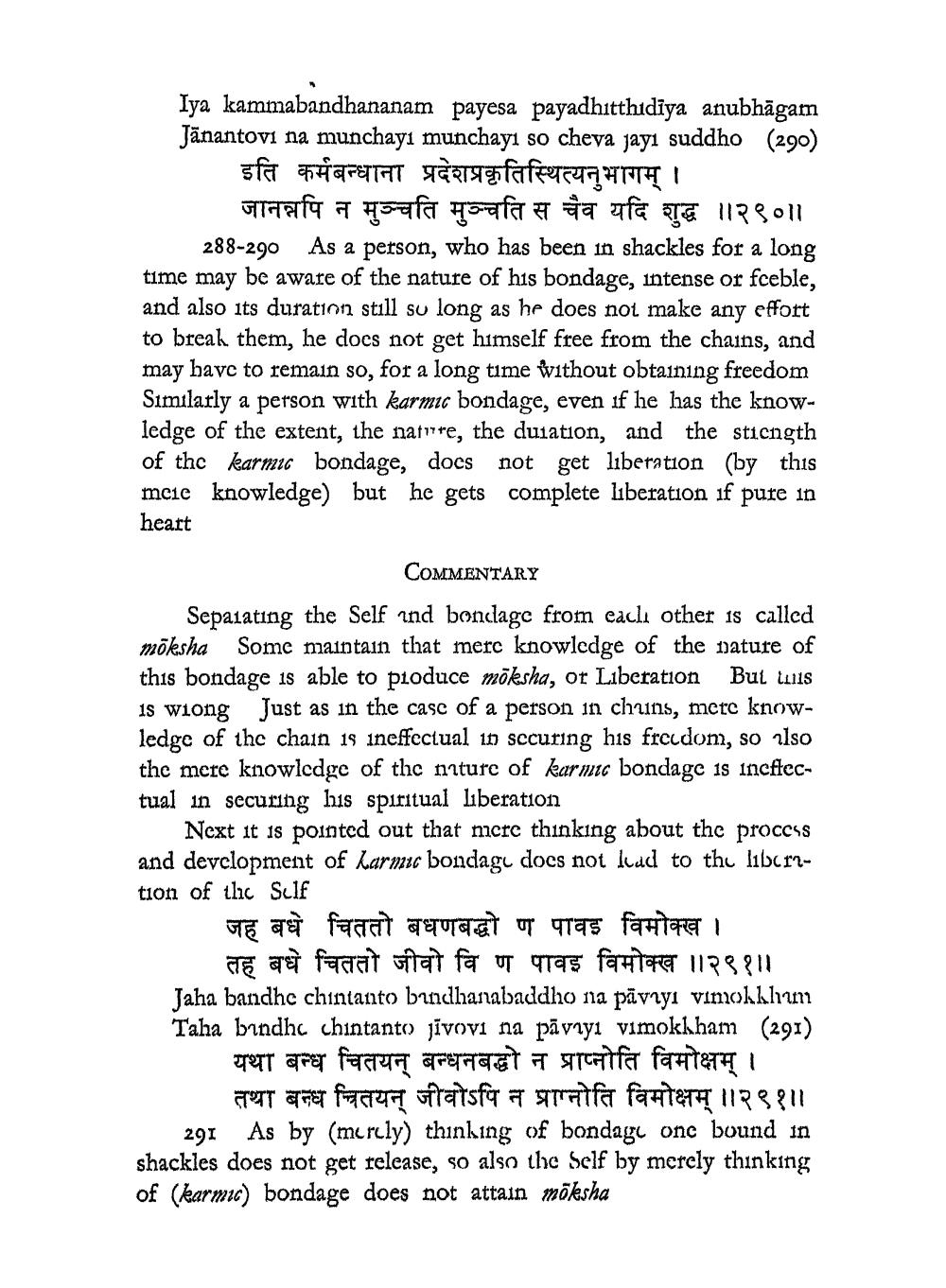________________
Iya kammabandhananam payesa payadhitthidiya anubhāgam Jänantovi na munchayi munchayı so cheva jayı suddho (290)
इति कर्मबन्धाना प्रदेशप्रकृतिस्थित्यनुभागम् ।
जानन्नपि न मुञ्चति मुञ्चति स चैव यदि शुद्ध ॥२९०॥ 288-290 As a person, who has been in shackles for a long time may be aware of the nature of his bondage, intense or fceble, and also its duration still su long as he does not make any effort to break them, he does not get himself free from the chains, and may have to remain so, for a long time without obtaining freedom Similarly a person with karmic bondage, even if he has the knowledge of the extent, the nature, the duration, and the stiength of thc karmic bondage, docs not get liberation (by this meie knowledge) but he gets complete liberation if pure in heart
COMMENTARY
Sepaiating the Self and bondage from each other is called mõksha Some maintain that merc knowledge of the nature of this bondage is able to produce mõksha, or Liberation Bul luiis is wiong Just as in the case of a person in chuins, mere knowledge of the chain 19 ineffectual in sccuring his freedom, so also the more knowledge of the niture of karmic bondage is incffectual in securing his spiritual liberation
Next it is pointed out that more thinking about the process and development of larmıc bondage does not lead to thu libcrrtion of tlic Sulf
जह बधे चिततो बधणबद्धो ण पावइ विमोक्ख ।
तह बधे चिततो जीवो वि ण पावइ विमोक्ख ॥२९१।। Jaha bandhc chintanto bandhanabaddho na pāvnyi vinokkhin Taha bindhi chintanto) jīvovi na pāvıyı vimokhham (291)
यथा बन्ध चितयन् बन्धनबद्धो न प्राप्नोति विमोक्षम् ।
तथा बन्ध चितयन् जीवोऽपि न प्राप्नोति विमोक्षम् ॥२९॥ 291 As by (merely) thinking of bondag, onc bound in shackles does not get release, so also the Self by merely thinking of (karmic) bondage does not attain māksha




